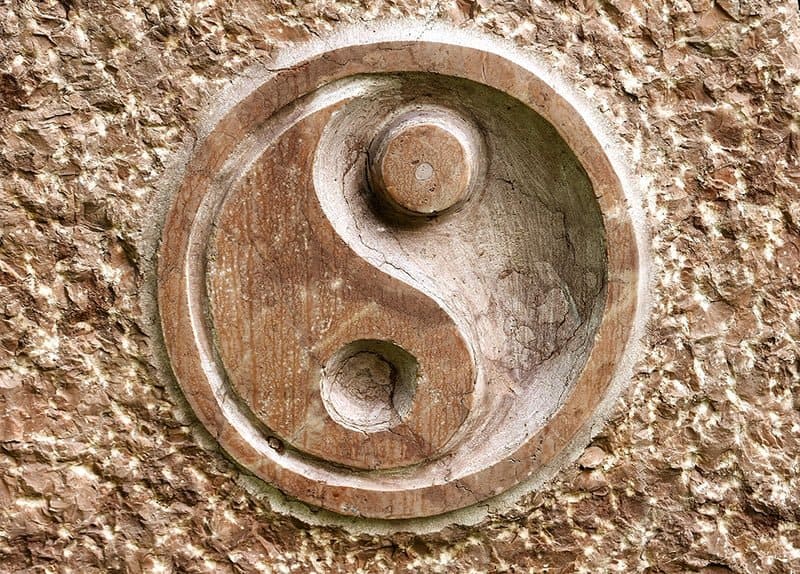Yin and yang: a Chinese concept that promotes balance and harmony between the positive and negative in life. As automation and artificial intelligence capabilities evolve, two yin and yang school of thoughts are evolving alongside them.
Table of Contents
ToggleOn the one hand, automation is being viewed negatively – the technology is going to steal our jobs and wreck the economy. On the other, automation is being viewed as the next technological breakthrough, pushing us to greater heights and augmenting our working lives.
So, which is it?
The yin: automation will do things for us
The yin of automation philosophy is the belief that automation will (detrimentally) do things for us. It’s this side of automation that has contributed the most to the fear of robots taking our jobs.
Tasks such as manual data entry, resource distribution, and back office admin work are all set to become successfully automated. In fact, 60% of all occupations have at least 30% automatable activities. Automation is proving itself adept at completing repetitive, systematic tasks efficiently, with less risk of human error.
When these tasks are a core part of the daily work you complete at your job, it’s easy to leap to the belief that automation is taking over completely, stealing your job and rendering you redundant. But you don’t need to compete with the robots.
The fear surrounding automation disruption – of robots taking over our jobs – merely comes from a pessimistic understanding of the yin of automation. The positives of the automation yin are often overlooked.
Analysing the yin
Automation should be allowed to do these boring things for us. The yin of automation isn’t the job-consuming evil that it appears to be. Just because automation is doing some things for us, it doesn’t mean that it’s capable of taking over the reins. According to an automation study, less than 5% of jobs could be completely handled by automation.
The reality is that automation is not replacing workers, but augmenting their abilities to do more, in more meaningful areas. How many of the tasks automation can handle comprise the entirety of someone’s job? Those doing manual data entry, for example, also deal with acquiring and interpreting that stored data. Even heavily automated processes like the checkout journey still need human support, and customer service has seen the failure of automation already in the form of Fabio the Pepper robot.
Embracing the yin of automation means eliminating career boredom. Technology can manage the monotonous admin that keeps you from the motivating aspects of your job. Automation yin can give you the career you wanted, without the tedious side effects. Do you really want to do those repetitive chores and tasks? Because automation could do them for you.
The yang: automation will enable us to do more
The yang of automation philosophy is centred on empowerment rather than disempowerment. While pessimists in the yin camp believe that automation will detrimentally do things forus, those in the yang camp believe it will enable us to do more.
Humans are natural tool makers; we make tools to amplify our natural abilities. An analogy for this ideafavoured by Steve Jobs was the man on the bicycle. Humans on their own were pitifully poor in terms of energy expenditure when travelling from A to B. But, with a bicycle, we became the most efficient travellers.
Humans have always made new tools to achieve what our natural ability alone cannot, and our lives have always adapted around them. Automation and AI is simply our newest tool– it’s no different from the bicycle, or any of the other technical advances we’ve made before.
For example, the workers in the industrial revolution also feared that their jobs would be taken by threatening new automation technology. But we’re still working today, still worrying that we will lose our work to the machines. History repeats itself, and just as before, automation simply means the creation and evolution of new, better work. We will be able to do things we never could before.
Welcoming the yang
Automation should be allowed to enhance our natural strengths. If the past is anything to go by, it will lead to innovations and inventions across all industries. By helping with the mundane jobs, automation will give us more time and ability to focus on the human sideof our businesses, jobs and workflows.
Freeing up valuable time during the working day is the first half of the ways that automation will improve human efficiency and productivity. We’ll have more time to spend on tackling our core job duties, rather than getting tied up in processes.
Boosting our capabilities and amplifying our output is the second half of the circle. Automation enhances our abilities to think, empathise and create. It’s this ability that sets us apart from the machines supporting our workflows.
In other words, AI and automation disruption might appear to be machines becoming human, but the technology also pushes us embrace our innate human abilities. The machines won’t surpass our ability to empathise, to think, and to compromise.
Automation yin and yang
We need to embrace both sides of automation disruption and advancement. The balance between the yin and yang of automation is exactly what’s needed to understand the potential for harmony between human and machine.
Our jobs are evolving. We’re moving away from the quantitative, tedious and repetitive, and we’re moving towards the qualitative, empathetic and human.
